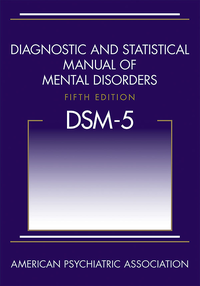
Photo from wikipedia
OBJECTIVE Persistent irritability and behavior outbursts in disruptive mood dysregulation disorder (DMDD) are associated with severe impairment in childhood and with negative adolescent and adult outcomes. There are no empirically… Click to show full abstract
OBJECTIVE Persistent irritability and behavior outbursts in disruptive mood dysregulation disorder (DMDD) are associated with severe impairment in childhood and with negative adolescent and adult outcomes. There are no empirically established treatments for DMDD. This study examined the feasibility and preliminary efficacy of dialectical behavior therapy adapted for preadolescent children (DBT-C) with DMDD. METHOD Children 7 to 12 years old with DMDD (N = 43) were randomly assigned 1:1 to DBT-C or treatment as usual (TAU). The 6 domains of feasibility included recruitment, randomization, retention, attendance, participants' satisfaction, and therapist adherence. Blinded raters assessed participants at baseline, after 8, 16, 24, and 32 weeks, and at 3-month follow-up. The primary efficacy outcome was the positive response rate on the Clinical Global Impression-Improvement scale. Improvements in behavior outbursts and angry/irritable mood were assessed by the Clinical Global Impression-Severity scale. RESULTS Mean number of participants randomized per month was 2.53 ± 2.72. Participants in DBT-C (n = 21) attended 89% of sessions compared with 48.6% in TAU (n = 22). Eight TAU participants (36.4%) dropped out compared with none in DBT-C. Parents and children in DBT-C expressed significantly higher treatment satisfaction than those in TAU. The rate of positive response was 90.4% in DBT-C compared with 45.5% in TAU, despite 3 times as many participants in TAU receiving psychiatric medications. Remission rates were 52.4% for DBT-C and 27.3% for TAU. Improvements were maintained at 3-month follow-up. Therapists showed adherence to DBT-C. CONCLUSION DBT-C demonstrated feasibility in all prespecified domains. Outcomes also indicated preliminary efficacy of DBT-C. Clinical trial registration information-Adapting DBT for Children With DMDD: Pilot RCT; http://clinicaltrials.gov/; NCT01862549.
Journal Title: Journal of the American Academy of Child and Adolescent Psychiatry
Year Published: 2017
Link to full text (if available)
Share on Social Media: Sign Up to like & get
recommendations!